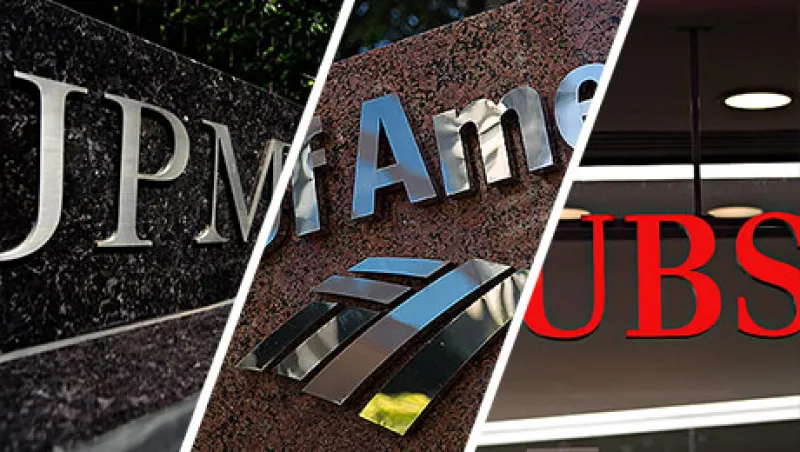High-tech or high-touch? It is a question that institutional traders and their clients have been confronting since late in the previous century, when computers began to displace humans in order management and execution functions. But automation has never completely conquered that world. The results of Institutional Investor’s first-ever ranking of All-Europe Equity Trading Teams show that the best service providers embrace both sets of competencies in what is anything but a homogeneous, one-size-fits-all business.
Christopher McConville, global co-head of equity electronic agency trading at UBS in London, says collaboration is only increasing among the firm’s trading desks — electronic, high-touch, and portfolio. In each of those three categories in the II survey, UBS places in the top five; in portfolio trading it is No. 1.
“Never before has electronic trading been closer to high-touch in terms of creativity, innovation, and strategy,” McConville observes. “One of our ambitions is to be the top global liquidity provider, and human touch is at the very heart of that.”
More than 330 buy-side traders and investment professionals at 280 firms voted for their top execution service providers in the three main trading categories. J.P. Morgan wins first place in electronic trading, followed by Credit Suisse and UBS. The most important factor was the trading performance of the algorithms, according to the voters. Other top reasons were maintaining anonymity of the trades and quality of technical support from the trading team.
UBS places an emphasis on regulation, resilience, and customization of algorithms, McConville notes, adding that his bank is “building out block functionality” in response to global client demand for better execution of large orders.
In high-touch trading, Bank of America Merrill Lynch takes the top spot ahead of J.P. Morgan and Morgan Stanley. Voters considered quality of sales traders and customer service, as well as access to liquidity, as the top criteria in ranking a successful team.
One voter at a Canadian investment management firm runs several regional and global portfolios that require effective communication across multiple markets and regions. He commended Bank of America Merrill Lynch for combining a portfolio trading product with experienced traders’ expertise to meet his firm’s unique needs.
“This is something not easily achieved as increasingly complex and quantitatively driven market structure requires a deeper understanding of its participants,” the voter said in an e-mail. (II keeps the identities of survey participants confidential.) “BAML seems to have achieved a culture in which their traditional cash and [portfolio trading] businesses are equally prominent. I feel this is critically important at a global dealer where businesses often need to fight for scarce resources.”
In portfolio trading, leader UBS comes in ahead of Credit Suisse and J.P. Morgan. Buy-side traders and investors said minimizing market impact, or price movements related to large orders,was the main reason for choosing a portfolio trading team. Other top attributes were global trading capabilities and transparent trade execution.
Respondents also rated the firms in five areas of company coverage: developed European small- and mid-cap, emerging markets, Nordic, European overall, and special situations. The voters ranged from head traders to chief investment officers across hedge funds, mutual funds, and pension funds, among others. Investors with significant assets in emerging markets ranked BofA Merrill tops for its coverage in those markets. The bank is also the leading choice for overall company coverage across Europe. J.P. Morgan places first in developed European small- and mid-cap. Perhaps unsurprisingly, Nordea Markets was judged best in terms of Nordic company coverage. Citi is first in covering special situations such as mergers, spin-offs, and activism.
More than half of those surveyed said a single point of contact for all services is what they most prefer in a trading execution partner. In terms of what drives the selection of a trading venue, 32 percent cited ease and cost of execution. No matter the type of firm or strategy, traders and asset managers seem to agree: In an uncertain market environment fraught with political risk — fallout from Brexit and the French presidential election, to name two — simplicity and flexibility are keys to a successful trading relationship.






